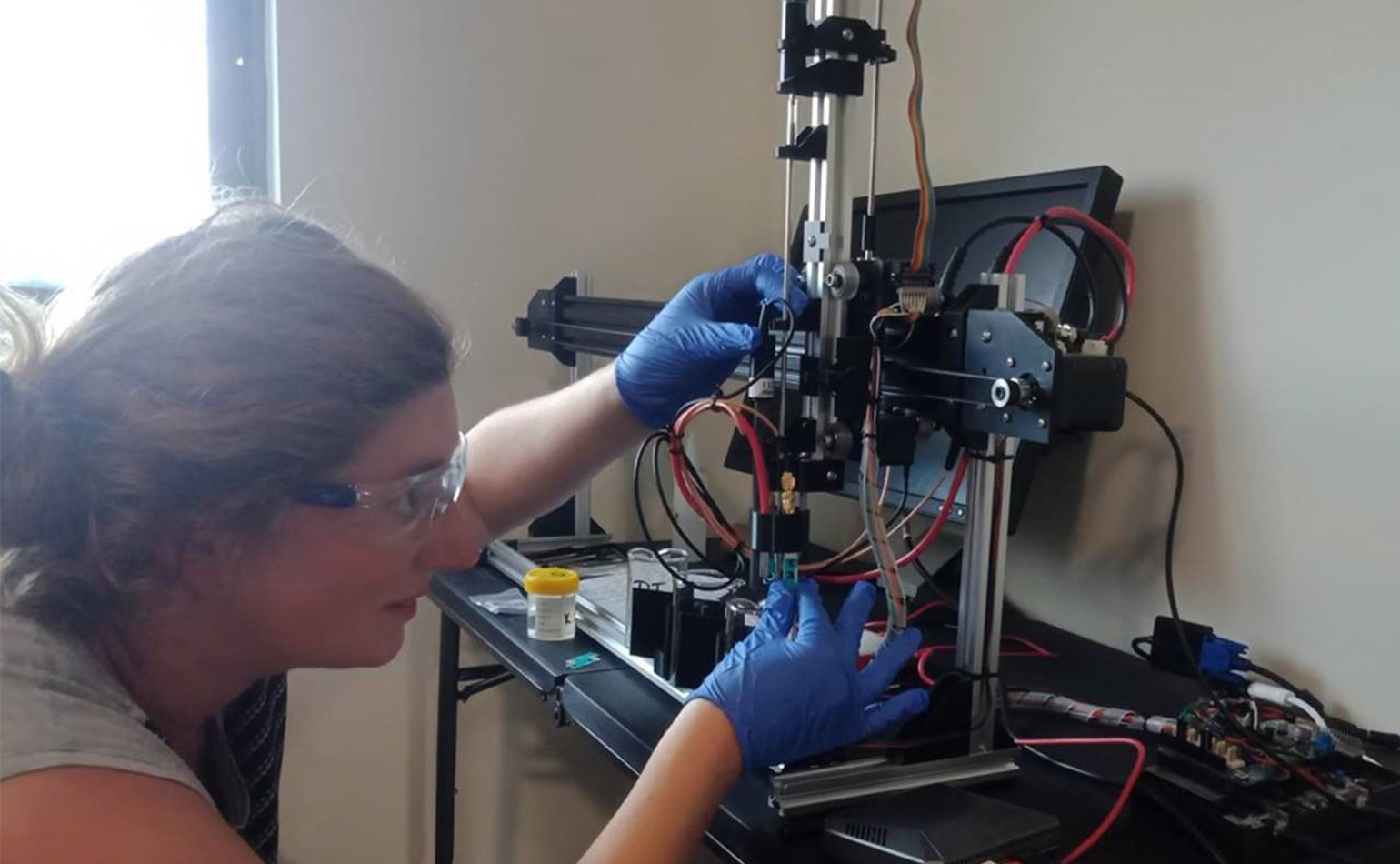Jaye Hill is a Soil CRC PhD student studying at the University of Southern Queensland and working on the PhD project Proximal soil sensing to measure and map soil nutrients. Her PhD supervisors are John Bennet (USQ), Craig Lobsey (USQ) and Pierre Roudier (Landcare NZ).
Jaye had a chat with Soil CRC Student Coordinator, Dr Cassandra Wardle.
What is your PhD project all about?
My PhD project focuses on designing sensors for nutrient management techniques. The idea is that these will be cheap to use and can give farmers real time information about the nutrient status of their soils for example, how much nitrogen, phosphorous, or calcium is in their soils at any one time.
We initially looked at ion-selective electrodes (ISEs) and we’ve been working on incorporating different membranes over the top of the electrode to pick up different nutrients. However, with the COVID-19 restrictions reducing lab access, we’ve moved across to near infrared (NIR) techniques. We’re now looking at fusing the two technologies together, and I think ultimately, we’ll get a better sensor out of it.
I love that this project addresses a real-world issue. It’s very practical and will help people make more informed decisions, both from an environmental perspective but also from a business and nutrient management perspective too.
What made you choose to do a PhD?
I decided to do a PhD because I found the project so interesting. And if you really want to go a long way in research you need to have that qualification behind you – when you’re applying for grants yourself, I think it gets you a lot more traction and opens a lot more doors.
Before I started my PhD I had completed my Bachelor of Environmental Science at James Cook University and I then moved to New Zealand where I worked with contaminated sites for soils and nutrient management. I moved across to greenhouse gas emissions from applications of nutrients to soils, and that brought me back to Australia to Queensland’s Department of Agriculture and Fisheries. I worked in nutrient management for greenhouse gases and different forms of fertiliser application, and then into the sensor technology. This led me to meeting Dr Craig Lobsey, who leads the broader Soil CRC project that my PhD is part of. I really enjoyed that side of integrating sensors into nutrient management and could see that it was a good way forward to help address some practical problems, so it was just a great fit to do this particular PhD project.
How does being part of the Soil CRC PhD program help?
I really love the cooperative aspects of working with the Soil CRC. For example, our industry partners up in Burdekin have been sending me down soil samples because the travel restrictions mean I can’t get up there. That’s been such a big help!
What is it about soil research?
Soils are fascinating, because there are so many interesting things that can happen with it. There are so many directions you can go in the soil science industry, and so much work that is still to be done and things still to be learnt, it’s a great area to work in. I really enjoy the complexity and the interactions involved in it all!
What is the next step for you?
The next step after I complete my PhD is a little bit unknown right now. It’s difficult to say with the current pandemic! I’d love to continue working in this space, but it’s important to be adaptable and follow opportunities.

